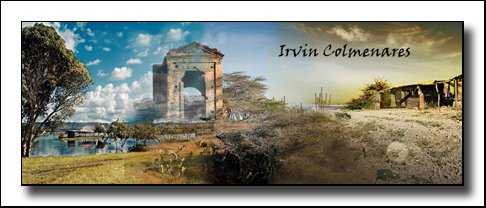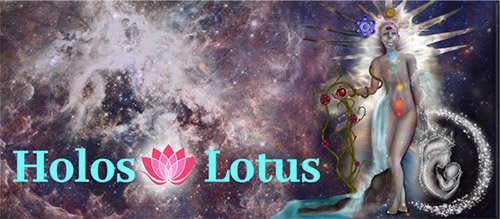Vivir y morir | Living and Dying

Saludos. La amiga @damarysvibra en su columna para la comunidad @holos-lotus nos deja la invitación a reflexionar sobre un tema que puede resultar inquietante: la vida y la muerte.
Durante mi infancia casi no escuchaba en mi familia hablar sobre la muerte. Quizá era porque en el grupo familiar todos eran muy jóvenes, mi madre apenas tenía dieciocho años, mi padre veintiuno, y mi abuela paterna estaba un poco más allá de los cuarenta.
De vez en cuando mi madre hablaba sobre su orfandad, quedó huérfana a los cuatro años, y guardaba muy pocos recuerdos de su madre.
Pudiera ser también que para los míos la muerte formara parte de esos temas tabúes que tienen las familias, algo de lo que no se habla, al mismo nivel de lo relacionado con la vida sexual de las personas.
El caso es que para mí la muerte era una palabra más o menos vacía a la que no daba una significación trascendental.
Esa percepción comenzó a cambiar cuando ya era hombre. Tendría unos treinta años cuando murió mi abuela paterna, era la primera vez que me enfrentaba a esa experiencia de ver desaparecer a una persona cercana y querida. Mi abuela era muy especial para mí porque durante la infancia viví algunos años con ella.

Aquella muerte de la abuela me llenó de desconcierto, sentí muy fuertemente la presencia del duelo. Esa gran pérdida me enfrentó a una realidad a la que no le había prestado suficiente atención.
Con el correr del tiempo a la muerte de la abuela se fueron sumando la de otros familiares, amigos y conocidos, con cada una de ellas la certeza de que hay un final se instaló definitivamente en mi vida y tuve más conciencia de la importancia de darle valor a nuestro tiempo vital.
En la publicación Damarys nos deja una pregunta difícil: ¿Cómo puedo vivir plenamente cuando sé que puedo morir en cualquier momento…?
Lo primero es asumir que nuestra vida tiene un propósito. Soy de los que piensan que llegamos al mundo a continuar una obra, a poner nuestro granito de arena para que cuando llegue el momento de nuestra partida lo hayamos dejado mejor.
Bajo esa perspectiva es muy fácil centrarse en la vida, porque nuestra energía e intención va dirigida a lograr el propósito.
Sin ese propósito en mente, sin tener aunque sea un mínimo plan de vida, la existencia puede volverse angustiante y azarosa, y el temor a la muerte puede llegar a instalarse como una presencia paralizante.
Hace muchos años leí una frase de Ernesto Sábato que en su momento no pude apreciar en toda su dimensión. Decía Sábato, palabras más, palabras menos, que lo difícil de envejecer era ser testigo de la muerte del mundo que te había rodeado.

Ahorita, a mis setenta años, estoy comprendiendo plenamente lo que dijo el argentino. Una buena parte del mundo de mi infancia y mi juventud ha ido desapareciendo.
Desde hace unos años las noticias de la muerte de personajes conocidos se multiplican con una velocidad de vértigo. Cada vez con más frecuencia recibió noticias en el Whatsapp informándome de la muerte de algún ex compañero de estudio o de trabajo, de alguno de mis maestros y profesores del liceo y la Universidad, y de cualquier persona que fue significativa en mi vida. Músicos, actores, y escritores que me impactaron con su arte y a los que pude conocer en vida han desaparecido, y siguen desapareciendo.
Pero reconozco que en la frase de Sábato hay mucho de nostalgia. La nostalgia siempre va a ser una presencia en la vida, siempre hay cosas que se echan de menos. Creo que realmente es inevitable tener momentos de nostalgia. Pero aún siendo inevitable su presencia tenemos la opción de no prestarle mucha atención.
Creo que lo mejor que podemos hacer con la nostalgia, es recibirla, atenderla un rato con amabilidad y dejarla ir. Como si se tratara de esas visitas indeseables que nos llegan en momentos inoportunos.
Como señalé arriba, ahora tengo mucho más conciencia del paso del tiempo. No saco cuenta de lo que me pueda quedar, de lo que me resta de vida. Eso solo lo sabe el Creador y me parece un poco inútil andar haciendo especulaciones sobre el tema. Trato en lo posible de seguirme enfocando en mi propósito. Y espero que mi último día me sorprenda haciendo cosas…
Gracias por tu tiempo.


Greetings. Friend @damarysvibra in her column for the @holos-lotus community leaves us the invitation to reflect on a topic that can be disturbing: life and death.
Growing up, I hardly ever heard my family talk about death. Perhaps it was because they were all so young in the family group, my mother was barely eighteen, my father twenty-one, and my paternal grandmother was a little past forty.
From time to time my mother would talk about her orphanhood, she was orphaned at the age of four, and she had very few memories of her mother.
It could also be that for my family, death was one of those taboo subjects that families have, something that is not talked about, on the same level as anything related to people's sex lives.
The fact is that for me death was a more or less empty word to which I did not give a transcendental significance.
That perception began to change when I was already a man. I was about thirty years old when my paternal grandmother died; it was the first time I was faced with the experience of seeing a close and dear person disappear. My grandmother was very special to me because during my childhood I lived with her for some years.

That grandmother's death filled me with bewilderment, I felt very strongly the presence of grief. That great loss confronted me with a reality to which I had not paid enough attention.
As time went by, the death of my grandmother was followed by the death of other relatives, friends and acquaintances. With each one of them, the certainty that there is an end settled definitively in my life and I became more aware of the importance of giving value to our vital time.
In the publication Damarys leaves us with a difficult question: How can I live fully when I know that I can die at any moment...?
The first thing is to assume that our life has a purpose. I am one of those who think that we come into the world to continue a work, to do our bit so that when the time comes for us to leave, we will have left it better.
Under that perspective it is very easy to focus on life, because our energy and intention is directed to achieve the purpose.
Without that purpose in mind, without even a minimal life plan, existence can become distressing and haphazard, and the fear of death can become a paralyzing presence.
Many years ago I read a phrase by Ernesto Sábato that at the time I could not appreciate in its full dimension. Sábato said, more or less, that the difficult part of growing old was to witness the death of the world around you.

Now, at the age of seventy, I am fully understanding what the Argentinian said. A good part of the world of my childhood and youth has been disappearing.
For some years now, news of the death of well-known people has been multiplying at breakneck speed. More and more frequently I receive news on Whatsapp informing me of the death of a former classmate or workmate, of some of my teachers and professors from high school and university, and of any person who was significant in my life. Musicians, actors, and writers who impacted me with their art and whom I got to know in life have disappeared, and continue to disappear.
But I recognize that in Sábato's phrase there is a lot of nostalgia. Nostalgia is always going to be a presence in life, there are always things that are missed. I think it really is inevitable to have moments of nostalgia. But even though its presence is inevitable, we have the option of not paying much attention to it.
I think the best thing we can do with nostalgia is to receive it, take care of it for a while with kindness and let it go. As if it were those unwanted visitors that come to us at inopportune moments.
As I noted above, I am now much more aware of the passage of time. I don't count how much time I have left, how much life I have left. That is only known to the Creator and it seems to me a bit useless to go around speculating on the subject. I try as much as possible to keep focusing on my purpose. And I hope that my last day will surprise me by doing things....
Thanks for your time.
Translated with DeepL.com (free version)








Comunidad Be Entrepreneur

One ordinary would think that the time, ticks behind, no it all forward, no one would believe it. We need to understand the time, how, when, why and where have we been able to use these opportunities of life to impact and create, internal pleasing records. Thanks for this great article, it created more insight on my part.
Hola @irvinc, la frase que citas me parece más inquietante que la pregunta formulada en la iniciativa, porque sentir como las personas que amas, respetas o admiras se desvanecen efectivamente crea una sensación de añoranza, sentimiento que puede ser peligroso cuando no se atiende y dejamos que se ancle.
Saludos, gracias por unirte a la iniciativa. 😊
@irvinc Al igual que @damarysvibra , me resuena esa frase , que con el pasar de los años es cuando más se hace vigente, ciertamente el tema de la muerte es tabú, sobre todo en el seno familiar, porque es allí donde más duele, dejando vacíos imposibles de llenar, pero como tú dices,nos deja llenos de nostalgias, que no es mala , pero que tenemos que vivirla para valorar a las personas que aún están vivas y presentes en nuestras vidas.
Un Abrazote🤗, excelente reflexión 👍🏻
¿ᴺᵉᶜᵉˢᶦᵗᵃˢ ᴴᴮᴰ? ᵀᵉ ˡᵒ ᵖʳᵉˢᵗᵃᵐᵒˢ ᶜᵒⁿ @ruta.loans
Querido ɑmigo @irvinc;
Lɑ vidɑ es un viɑje lleno de ɑltibɑjos, y ɑunque lɑ concienciɑ de nuestrɑ mortɑlidɑd puede pɑrecer unɑ cɑrgɑ, tɑmbién puede ser un recordɑtorio poderoso pɑrɑ vivir cɑdɑ díɑ con grɑtitud y propósito. A los 70 ɑños, hɑ ɑcumulɑdo unɑ ricɑ experienciɑ de vidɑ, llenɑ de recuerdos, sɑbiduríɑ y ɑmor. Este es un momento pɑrɑ celebrɑr todo lo que hɑ logrɑdo y lɑs relɑciones que hɑ construido.
Vivir plenɑmente no significɑ ignorɑr lɑ reɑlidɑd de lɑ muerte, sino ɑbrɑzɑrlɑ como pɑrte del ciclo nɑturɑl de lɑ vidɑ. Cɑdɑ díɑ es unɑ nuevɑ oportunidɑd pɑrɑ disfrutɑr de lɑs cosɑs simples: un ɑmɑnecer, el cɑnto de los pɑ́jɑros, unɑ conversɑción con un ser querido. Es un momento pɑrɑ redescubrir pɑsiones, explorɑr nuevos intereses y compɑrtir tu sɑbiduríɑ con lɑs generɑciones mɑ́s jóvenes.
Pregúntɑte, ¿qué te hɑce sentir vivo? ¿Qué te trɑe ɑlegríɑ? Puede ser ɑlgo tɑn sencillo como leer un buen libro, pɑseɑr ɑl ɑire libre o dedicɑr tiempo ɑ un hobby. Enfócɑte en estos momentos y permite que te llenen de energíɑ y sɑtisfɑcción.
Recuerdɑ tɑmbién que tu legɑdo no estɑ́ solo en lɑs grɑndes hɑzɑñɑs, sino en los pequeños gestos de ɑmor y bondɑd que hɑs compɑrtido con los demɑ́s. Tus recuerdos, tus enseñɑnzɑs y tu cɑriño vivirɑ́n en los corɑzones de ɑquellos ɑ quienes hɑ tocɑdo. Lɑ vidɑ plenɑ no se mide por su durɑción, sino por lɑ profundidɑd con lɑ que hemos ɑmɑdo y vivido.
En lugɑr de preocupɑrte por lɑ muerte, enfócɑte en cómo puedes hɑcer que cɑdɑ díɑ cuente. Agrɑdece lɑs bendiciones que tienes y encuentrɑ ɑlegríɑ en los momentos presentes. Lɑ plenitud viene de vivir con ɑutenticidɑd y propósito, independientemente de lɑ edɑd o el tiempo que nos quedɑ.
Soy de las que piensa que es inevitable morir pero si puedes controlar la manera en que vives hasta que llega el momento.
Muy bonito post.